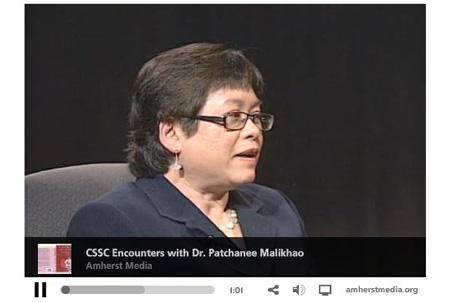"This book provides insights into the nature of sex in the villages of Thailand. Dr. Patchanee Malikhao, its author and a Thai Sociologist, spent time in villages to obtain first-hand knowledge of strategies that may help prevent the spread of HIV/AIDS through sexual relations. The book also probes whether social determinants, including culture and religion, help or hinder local residents in their own attempts to curb the spread of AIDS. The cost of managing the disease has increased significantly compared to many other health interventions. To make sure such expenditures are effective, we need to understand the social context of prevention strategies and confirm that it is relevant to the social relations of people. This book will help us achieve this understanding.
Emeritus Professor Santhat Sermsri
Chairman, Committee for Research Ethics (Social Science Branch)
Mahidol University, Bangkok
The book begins by reviewing interesting secular HIV/AIDS prevention programmes and community based approaches, and highlights lessons learnt from them. It then describes and explains the Buddhist and Christian approaches followed in Thailand. The author examines how globalization has affected sexuality in the country from a historical perspective and discusses the dynamic interaction between Thai culture and globalization.
It then analyzes the worldviews, and narrates exclusive life stories of Buddhist and Christian religious leaders and villagers on HIV prevention from two communities. This is followed by an analysis of the Buddhist and Christian HIV/AIDS prevention perspectives. The book concludes with an assessment of the effectiveness of religious interventions in HIV/AIDS prevention, and research findings on sex education undertaken in Thailand
The author, Patchanee Malikhao, was interviewed by CSSC Encounters in June 2011 about the book. The video of the full interview is available from AmherstMedia.org and may be streamed here. 
|